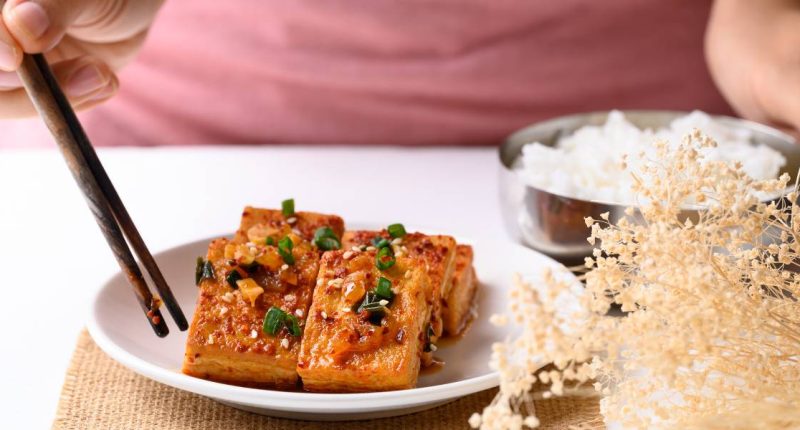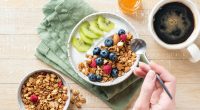Crunchy food that takes longer to chew and helps people feel fuller quicker could be the secret to weight loss, according to new research.
A study has found that people consume fewer calories when eating food with a harder texture, while still getting to enjoy food they like.
Researchers enrolled 50 people who were given four similar meals containing the same amount of calories and rated the same according to how well they tasted.
- Brown seasweed shows promise as type 2 diabetes treatment
- Regular pizza and crisp eaters at 25% greater risk of throat and mouth cancer
- Nearly half a million adults unemployed because of bad drinking, eating and smoking habits
Two of the lunches were classed as ultra-processed while the other two were minimally processed, and one meal in each category was made up of harder, crunchier food.
The team found that when eating the harder, crunchier lunches, participants consumed around 300 calories less than the softer food.
The study’s senior author, Professor Ciarán Forde from Wageningen University in the Netherlands, said: “We now have more than a decade of evidence that people choosing textures which encourage them to eat more slowly, like crunchier, harder or chewier foods, can help to consume fewer calories, while still feeling equally satisfied.
“What is appealing in using meal textures to change behaviour and intake is that people can still enjoy eating the foods they like, while reducing the risk of over-consumption.
“It means people can still enjoy a meal and eat until comfortably full, without having to feel restricted.”
Examples of the harder food included boiled rice rather than mashed potato, a crunchy salad in place of coleslaw and an apple instead of soft canned mangoes.
- Health complications associated with certain ultra-processed foods
- What the UPF: 1 in 7 adults addicted to ultra-processed food
- Brain changes in women at certain times of the month increase cravings for junk food
Participants seemed to have eaten less when tucking into the harder-to-eat lunches because it took them longer to chew, slowing down the rate of food consumption.
The researchers think slowing down the rate at which you eat helps people feel full quicker, so they stop eating.
The study findings showed that the hard, minimally processed meal led to people consuming, on average, the least number of calories – 483 – while the highest average amount of calories consumed – 790 – came from consuming the soft, ultra-processed meal.
Food texture has been the subject of research by the team before – in a previous study they showed that a carrot takes three times as long to eat if it is cut into bigger, thicker pieces with no mayonnaise to act as a lubricant.





